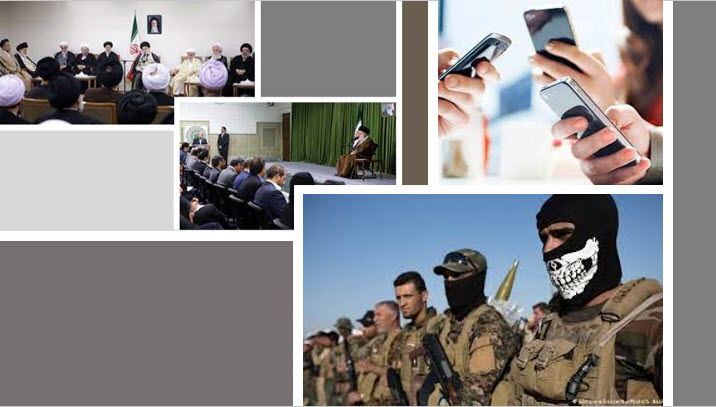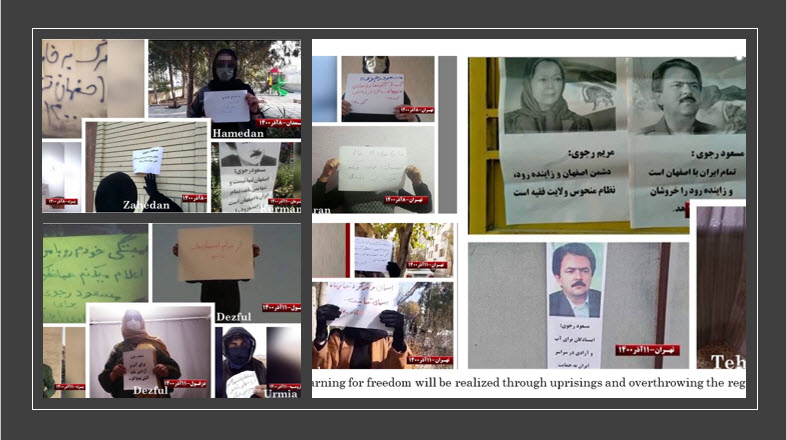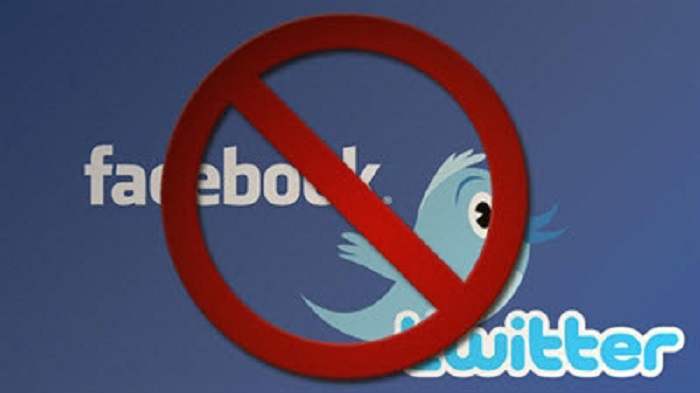
MEK: The main intention of the mullahs’ regime is to shut down the internet to suppress the protests.
The clerical regime’s parliament is about to enact an internet “protection bill,” according to Iran’s state-run media, drastically restricting the country’s internet and online freedoms. The bill, formally known as the “Cyberspace Users Rights Protection and Regulation of Key Online Services,” will prevent citizens’ access to international services, primarily social media, and allow the regime’s security apparatus to control internet gateways in order to exacerbate dissent suppression.
Mullah’s leader voiced his absolute terror of social media
Ali Khamenei, the mullahs’ Supreme Leader, voiced his absolute terror of social media in a speech on July 20, 2021, calling the necessity to control it as his regime’s “major task at hand.” He went on to say that it is an “important issue” that officials should pay attention to.”We have no control over online and social media.” It’s a [major problem]. People should not be able to use social media in any way they wish.
It, like water, should be properly channeled. According to Tasnim News Agency, an organization associated with the Islamic Revolutionary Guard Corps (IRGC) Quds Force, Khamenei added, “Others are now managing social media, and we shouldn’t stand idly by.”Through social media, the enemy has formed a fighting formation. “The [government] must likewise take its own stand and prepare,” Khamenei admitted.

Khamenei added, “Others are now managing social media, and we shouldn’t stand idly by.”Through social media, the enemy has formed a fighting formation.
The opposition uses social media to organize more protests
In 2018 and 2019, two large nationwide protests rocked the regime’s foundations. People demanded a change of government and a return to democracy. When the regime began its cruel crackdown, citizen journalists and the main Iranian opposition’s social media network immediately spread the word of the regime’s heinous deeds and people’s calls for democracy around the world. Protesters and the opposition also utilized social media to organize more demonstrations.
Despite the regime’s intensive demonization effort against the major Iranian opposition, the People’s Mojahedin of Iran (PMOI / MEK Iran), thousands of young people have joined the MEK’s Resistance Units network in recent years. By undertaking daring daily operations under the noses of the mullahs’ overt and covert operatives, the MEK’s Resistance Units have shattered the regime’s climate of suppression and terror.

Thousands of young people have joined the MEK’s Resistance Units network in recent years.
The MEK generated an ambiance against mullahs on Twitter
In May 2019, General Ebrahim Golfam, Cultural Deputy at the Joint Chiefs of the regime’s Armed Forces, said, “The MEK, stationed in the capital of a European country, are busy night and day generating an ambiance against the Islamic Republic on Twitter, Instagram, and Telegram.”As a result, the regime seeks to avert the downfall of the reigning theocracy bypassing the new internet-restricting bill. It will also have significant economic ramifications for millions of Iranians who rely on social media for a living, especially as the Covid-19 crisis worsens.
The Parliamentary Research Center warned of the economic and social implications of passing the “protection law” in a letter to Reza Taghipour, Chairman of the Joint Commission to Review the “protection bill.”The bill’s negative impact on the digital economy, according to the parliament’s Research Center on December 31, 2021, will cause a substantial capital exodus while increasing corruption and theft. It goes on to say that the measure will “deal an irreparable harm to tiny online firms,” as well as increase brain drain and aggravate people’s resentment of the ruling regime.

Iranian regime under Raisi filters Internet. On December 1, 2021, the state-run Khabar-e Fori website announced, “This will have dangerous consequences.”
The regime is unable to find a way out of escalating crises
According to Hamshahri, enacting the internet protection plan will result in a “10,000 trillion rials misappropriation [equal to $35 million based on the current free-market exchange rate],” citing Nima Namdari, a member of the Board of Directors of the Tehran Computer Guild System.
Limiting internet access, like earlier regime measures, would elicit large-scale protests, which state-run media have already prophesied will be a “bitter nightmare.” “At a time when people are being crushed by poverty and businesses are being harmed by Covid-19, the parliament is attempting to enact a bill [restricting] internet.” People fear losing their enterprises as a result of this scheme, which has stunned society. On December 1, 2021, the state-run Khabar-e Fori website announced, “This will have dangerous consequences.”
If it doesn’t, more young people will join the MEK, which will lead to more organized and frequent protests. This is the precise definition of a desperate regime that has run out of choices and is unable to find a way out of escalating crises.

The regime is in challenging circumstances. If Government passes the bill, it risks inciting mass protests from an already enraged public.
MEK Iran (follow us on Twitter and Facebook), Maryam Rajavi’s on her site, Twitter & Facebook, NCRI (Twitter & Facebook) and People’s Mojahedin Organization of Iran – MEK IRAN – YouT

